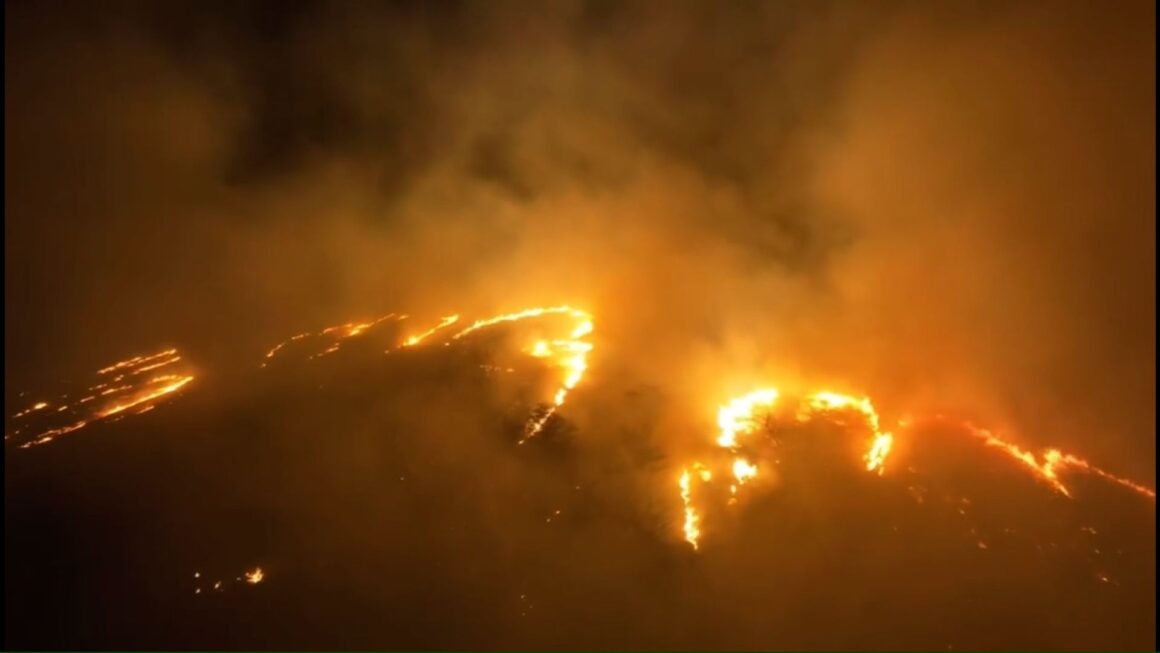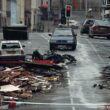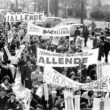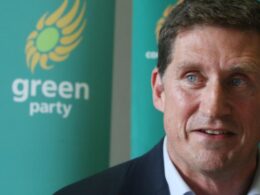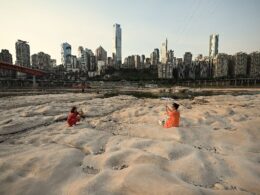By Mandy Gee, Socialist Alternative (our sister organisation in the US)
As of August 13, at least one thousand people are unaccounted for, and over 93 are confirmed dead in the deadliest disaster in Hawaii’s history: devastating wildfires that have wiped out thousands of buildings and razed entire towns.
How did this happen?
A small series of fires broke out on the island of Maui on Tuesday, August 8th. While the direct cause of the fires is not yet known, the ultimate fuel for the flames is deadly climate change, which contributed to the severity of this crisis.
Maui went from lush to bone dry (and thus more fire-prone) in a matter of just a few weeks. Much as the Northeast and Midwest have suffered in recent months from droughts followed by intense flash flooding, warmer tropical areas will be equally impacted by “flash droughts” as climate change intensifies.
Flash droughts are so dry and hot that the air literally sucks moisture out of the ground and plants, making them more likely to catch fire. In late May, none of Maui was unusually dry; a week later the island was more than half “abnormally dry.” By June 13 it was two-thirds either abnormally dry or in moderate drought. And in this last week, about 83% of the island has either been abnormally dry or in moderate or severe drought.
Capitalism-caused climate change is making droughts faster and more furious, intensifying the risk of wildfires. Climate change also increases the strength of tornadoes and hurricanes, which can then fuel stronger “wind events” like the one behind the Maui fires.
Hawaiian history Goes Up in Flames
Steeped in Hawaiian history dating as far back as 300 years and revered by native Hawaiians, the once lush and green town of Lahaina is now mostly reduced to ash.
Over ten thousand people on Maui have lost power, and the island’s hospital system is overwhelmed with burn patients and people suffering from smoke inhalation.
The Lahaina fire is the deadliest in the US in over 100 years, with residents comparing the devastation to a war zone. “The full extent of the destruction of Lahaina will shock you. It does appear that a bomb went off,” Hawaiian governor Josh Green said.
As the flames devoured the town, several people were forced to jump into the ocean to escape the apocalyptic scene, floating for hours before being rescued by the US Coast Guard. Thousands of residents are freshly unemployed, if not homeless. Billions of dollars will be required to rebuild.
This is far from the first human-caused tragedy to hit Hawaiians. In 1898, the United States annexed the island, kickstarting a long struggle between the island’s inhabitants and United States imperialism. The US first set its sights on Hawaii due to the island’s booming sugar trade but as imperialist powers across the world began to grow, the Hawaiian islands would be increasingly used by the US military as a strategically valuable mid-Pacific fueling station and naval installation. Effectively, ever since Hawaii was “discovered” by Europeans in the 18th century, Hawaiian land has been taken and misused by non-Hawaiians, often to the detriment of Hawaiians and their traditions. The highly lucrative tourism industry is the latest in a string of industries that have set their sights on the islands. The Hawaiian islands’ lush landscape has been a cash cow for major hotel chains that have functionally manufactured the dependence of native, working-class Hawaiians on the industry.
What will happen to Maui’s working class and poor?
Under the system of capitalism and the state that upholds it, natural disaster reconstruction that centers working class people is never guaranteed. For example, one study revealed that the Louisiana Recovery Authority’s “Road Home” program helping homeowners rebuild after hurricanes Katrina and Rita “shortchanged people in poor neighborhoods while giving those in wealthy neighborhoods more of what they needed … People in the most impoverished areas in New Orleans — those with a median income of $15,000 or less — had to cover 30% of their rebuilding costs after Road Home grants, Federal Emergency Management Agency aid and insurance. In areas where the median income was more than $75,000, the shortfall was 20%.”
An even worse situation is set to play out with residents on Maui. The fires have decimated many of the houses and apartments where residents working in Maui’s tourism industry lived. The island had long been facing a housing shortage, with affordable housing the least accessible for the people who make the island run. While resorts and other tourist attractions have eaten up much of the land, residential properties have also been misused as vacation properties for years, further choking off the housing supply and forcing workers to spend even more time and money moving elsewhere just to have a roof over their heads.
Now, with over a thousand buildings destroyed, workers who lost their homes will likely be housed in hotels — but for how long? When will the corporations who own them kick the displaced out to start churning out a profit once more?
If airlines can still shuttle tourists in during Hawaii’s worst natural disaster in history, who’s to say they won’t continue to prioritize the tourism industry, much as Puerto Rico’s ruling class did after 2017’s Hurricane Maria? The PRTC, Puerto Rico’s official governing body of the tourism industry, declared the island officially open for tourism again in December 2017, just three months after the hurricane — yet it took eleven months for power to be fully restored to the island. And as of 2022, over 3,000 people were estimated to still be living without solid roofs, their homes covered by tarps.
Maui’s recently displaced workers do not have to share this fate, however, and as soon as the wave of shock and grief has passed, there is potential for residents to band together and organize for reconstruction that ensures all workers’ losses are compensated. These are the workers who make Maui the ultra-profitable tourist destination it’s known as; without them the island cannot and should not run. This tragedy should empower workers to fight to take the tourist industry into their own hands, to ensure not only housing stability, but also the conservation of their beautiful island which continues to be eroded away by high-end real estate development and the tourist industry.
To Win a World Free of Climate Catastrophe, We Need a World Free of Capitalism
This tragedy is 100% the fault of capitalism and the sellout politicians in power who refuse to do absolutely anything about the climate catastrophe that is already here.
It is now abundantly clear to many working people that the ruling class has completely and utterly failed to take meaningful action on climate change, which results from their profit-seeking system in the first place. Capitalism is killing us. The blood of hundreds of thousands, if not millions, of innocent people is in the hands of the ruling elites. Since big business and capitalist politicians are incapable of implementing the changes that are necessary, as those go against the very pillars of capitalism — we must fight for change ourselves.
Working people, including those employed in polluting industries, families looking to protect our children and aging parents, young people facing the threat of a limited future, and oppressed people bearing the brutal impacts of climate change combined with the marginalization resulting from capitalism’s social divisions, must unite in independent struggle for the relief we most urgently need, as well as the true, once-and-for-all solutions to the climate crisis.
Ultimately this means workers taking industry into our own hands, but this will only be possible if we can build a mass movement of working class people, with a fighting program of demands to link the fight against the climate crisis to the struggle against the cost of living crisis, low wages, and other struggles taking place. Such a program would open the possibility for stronger united action, make concrete victories possible, and lay the basis for overthrowing the capitalist system that is destroying the planet. Get involved in the fight for a better world — a socialist world — and join Socialist Alternative today!





